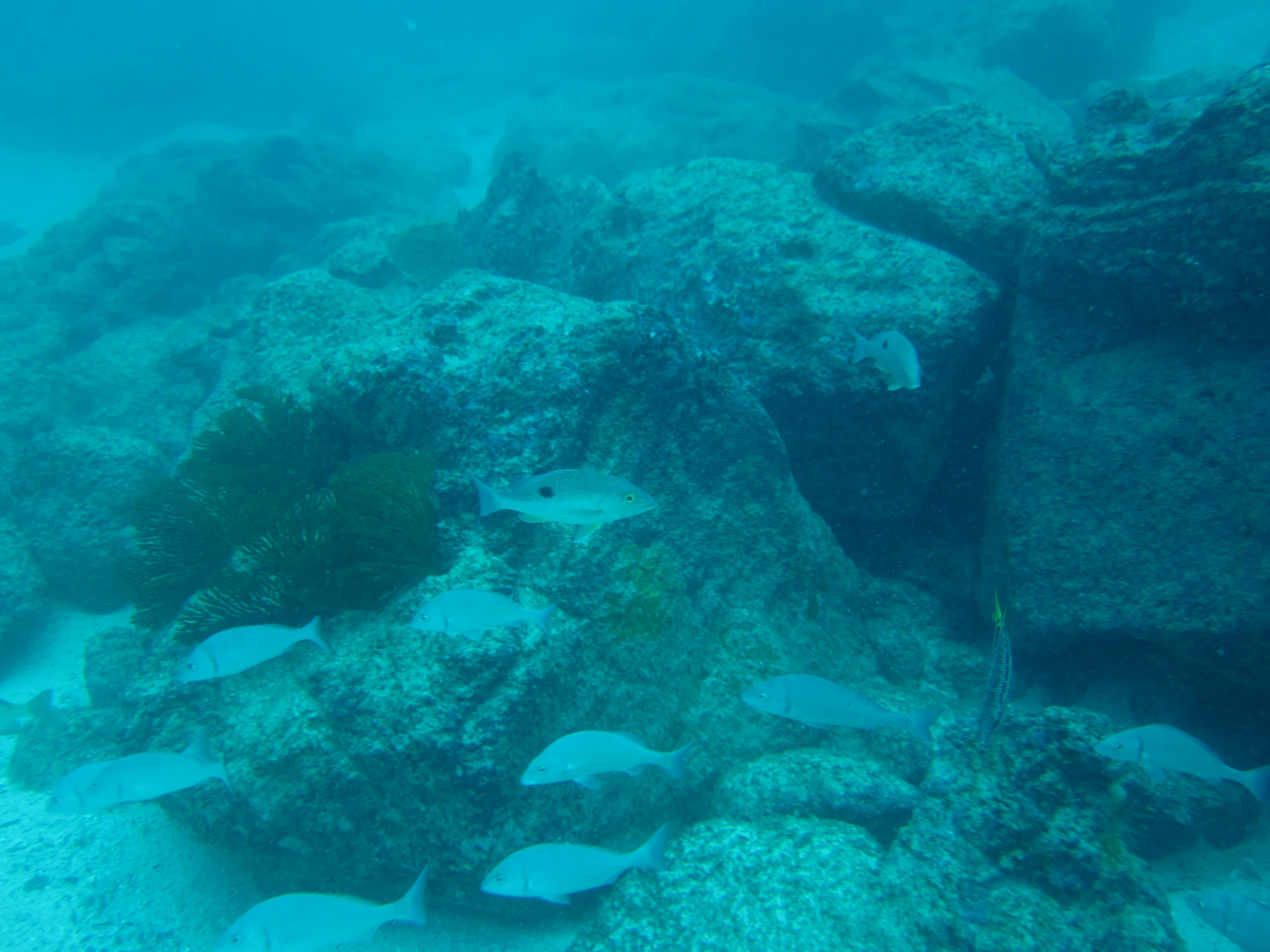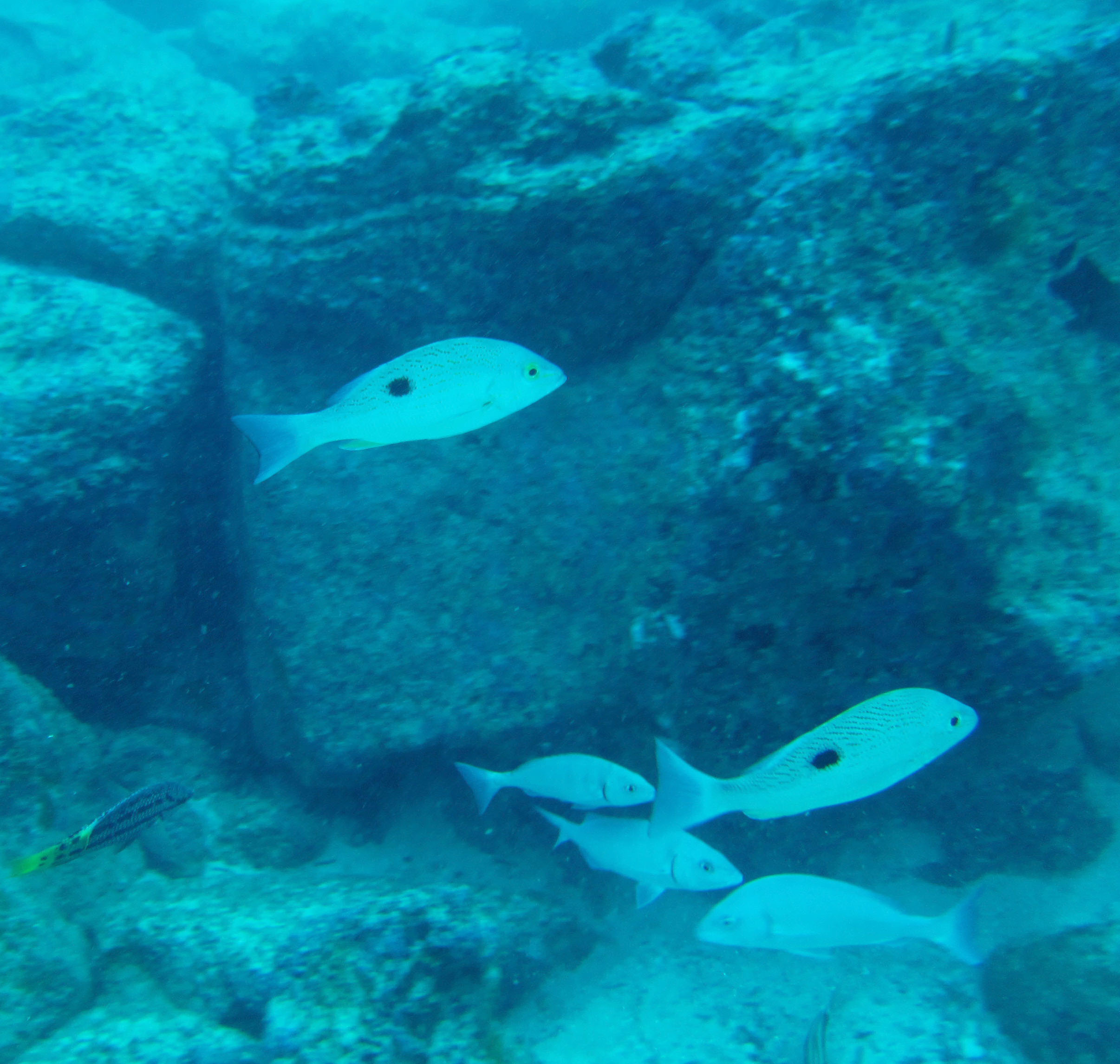By Michelle Marraffini. Invertebrate Zoology and Molecular Ecology Lab
After graduating from MLML, former students go on to do great research at their new jobs or in PhD programs. One of these former students is Paul Tompkins of the Phycology Lab, who took a phd position at Leibniz Center for Tropical Marine Ecology (ZMT) in Bremen, Germany. Paul is conducting research the Charles Darwin Research Station in the Galapagos. Beyond the famous finches and the oldest tortoises, the Galapagos also boasts an impressive marine system protected by their national park. As part of a larger, ongoing project Paul is studying the role of algae in the food web and the response to climate change including El Nino events.

Photo by: David Acuna
While collecting preliminary data of the system, using underwater transects and estimates of percent cover, a diver (David Acuna) helping Paul monitor Punta Nunez came across a fish species he did not recognize. The possible identity of this fish is the species Lutjanus guttatus, Spotted rose snapper, which was cited for the first time in the Galapagos from catch data in Puerto Villamil in pervious years. If the identity of this mystery fish is confirmed it would be a new record of the species and help scientists monitor populations of fish in the area. It just goes to show that you always have to keep your eyes open for new discoveries.


